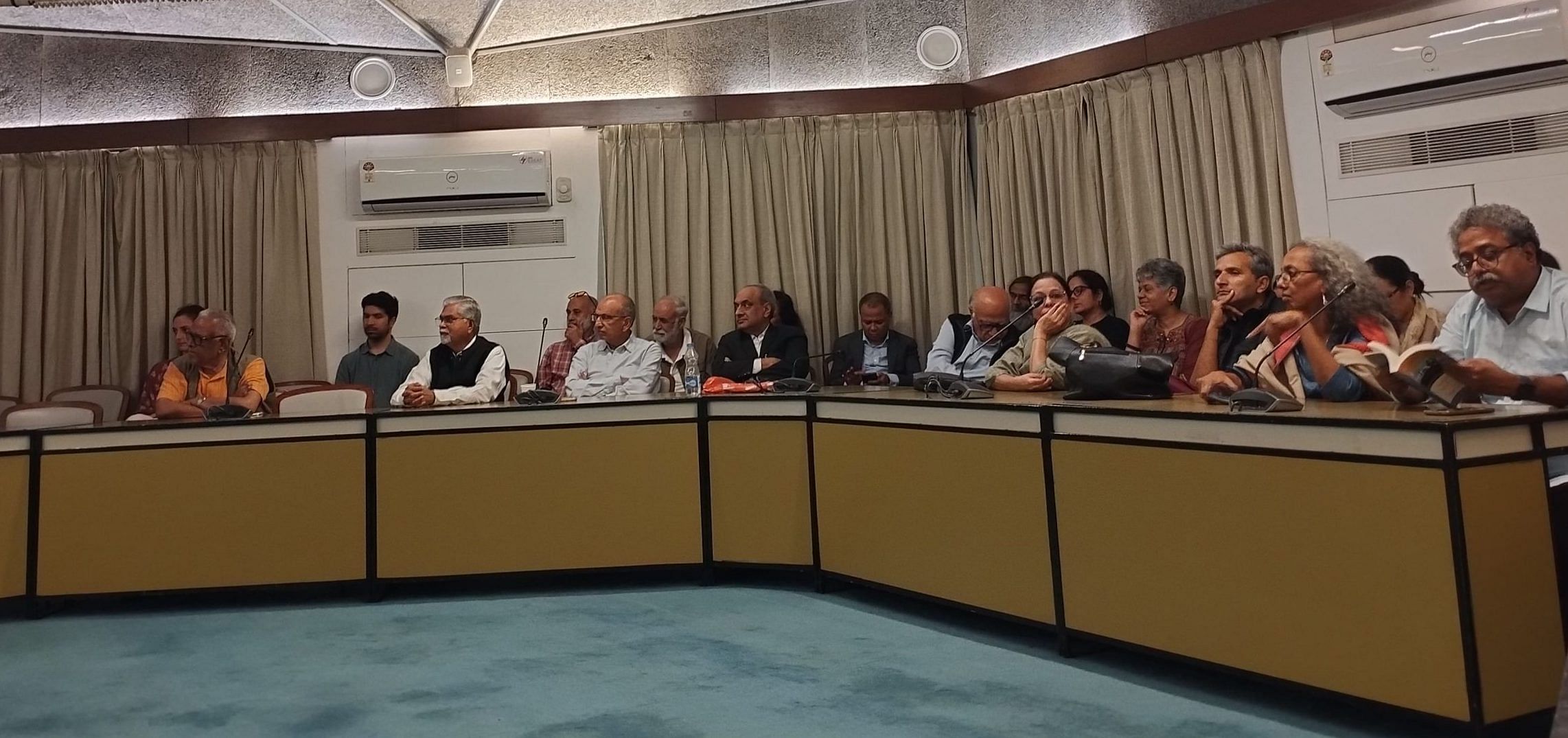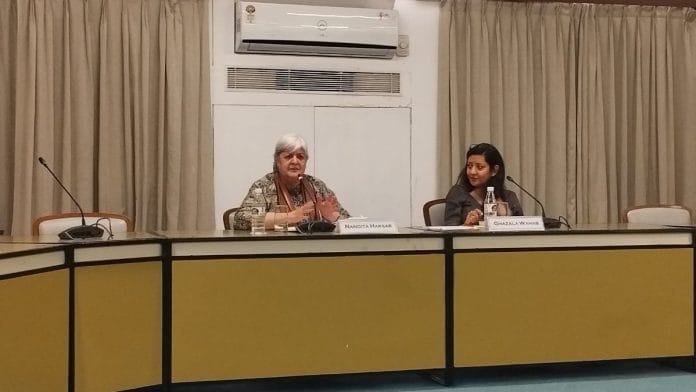New Delhi: Nandita Haksar had finished a meal in Amritsar, redolent with the flavours of Punjab with a group of friends from Andhra Pradesh, when one of them broke the satisfied silence. “But where’s the rasam?”
The audience at India International Centre laughed along with her. Haksar, who was discussing her new book, The Colours of Nationalism, said the question struck her as both bizarre and amusing—travelling all the way to Amritsar only to miss rasam. She even considered titling her work Rasam in Amritsar to highlight these cultural quirks.
“But it’s not funny anymore,” she said. “Food has become a central political issue in this country. You can even be lynched for what you eat.”
In India, food in all its glorious flavours is simmering with caste, gender, and community prejudice. The Colours of Nationalism may have begun as a culinary exploration of India but it turned into a deeper conversation about the biases and barriers shaping Indian identities, plate by plate.
Growing up in a privileged upper-caste, upper-class family in Delhi with a bureaucrat father, Haksar’s view of India—and the world—was inclusive but limited. Her understanding of the challenges and aspirations of people from other parts of India was constrained by her privilege. Through her human rights work, she sought to explore why many felt excluded from the idea of India and how they could be included.
“India is often oversimplified, like equating its cuisine with a single dish. An idea that overlooks its vast diversity and risks alienating communities from the Northeast or South,” she said.
Haksar’s goal is not to represent but to understand how India is perceived and experienced through its diverse communities.
The Colours of Nationalism, the second in Nandita Haksar’s memoir series. The first book, The Flavours of Nationalism (2018), explored food and nationalism. The new release chronicles her journey as a human rights lawyer exploring India’s marginalised realities.
She encounters Nagas under military rule, minorities fearing violence, impoverished Adivasis in resource-rich lands, demonised public sector workers, and women oppressed.
“I was trying to understand how India is perceived and experienced differently across various parts of the country. That’s what the colours represent,” she said.
A new approach to inclusivity
Haksar said the human rights movement was undermined by the rise of NGOs, which avoided challenging the state due to their dependence on it.
Author and journalist Ghazala Wahab, who was the moderator of the event, said the term nationalism had been weaponised against marginalised groups, compelling them to prove their allegiance to the nation. “How do we restore this term from what it has become, and infuse it with the sentiment with which you have used it?” asked Wahab.
Haksar responded with a poem from her book. As she began reciting it, the serious hall came alive with praise.
Such are the effects of hate,
Even animals have been divided,
The cow has become Hindu,
The goat is now Muslim,
The trees and leaves and branches are troubled,
For birds too may become Hindu and Muslim,
The dry fruits are very confused,
Should coconuts now be Hindu and date Muslim?
Haksar explained that the true meaning of inclusivity required deeper reflection—beyond the Hindu-Muslim binary. She used the example of Ganga-Jamuni Tehzeeb, saying that it excluded communities, especially from the Northeast.
Haksar once spoke of the syncretic culture with pride, rooted in her mother’s heritage from Lucknow. But her husband, a Naga Catholic, didn’t fit the traditional framework of Ganga Jamuna Tehzeeb, prompting her to reflect on inclusivity.
In her writings on food, she tackled similar biases. For instance, some claim the Muslims of UP make the best biryani, which disappoints Tamil Nadu’s Muslims, who argued biryani originated in the South. Haksar admitted that she too believed in the superiority of UP biryani, but she now this view, which she once defended fervently, was incorrect. It’s one of the things that taught her that true inclusivity requires challenging assumptions.
Haksar sees trade unions as a simple way to navigate these complex challenges of inclusivity—they focus on economic issues rather than getting caught up in communalism and identity politics.
“They (trade unions) are the ones that give me hope that there can be some version of inclusive nationalism,” said Haksar.
Also read: Taslima Nasrin’s Lajja has a ‘go to India’ message. As a play now, it’s a bold nod to CAA
Organising is the way
As the floor opened for questions, hands in the audience shot up. They wanted Haksar’s thoughts on a range of issues from the Manipur crisis to the Kashmir issue.

An audience member asked Haksar if she viewed the state as inherently oppressive in India, referencing examples like detention centres and bulldozer justice.
“The state was not a neutral body which arbitrage objectively, the state is an instrument of repression of a certain class,” said Haksar. “The nature of the state is different and today the nature of the state is to protect corporate interests.”
She emphasised the need to rethink the human rights movement, stating that she doesn’t rely on hope or despair. For her, the fight is ongoing, regardless of the outcome. Change in society requires organisation, as individuals acting alone will repeatedly fail and be disappointed. However, organising effectively remains a complex challenge.
“But difficult doesn’t mean impossible,” she said.
(Edited by Theres Sudeep)






